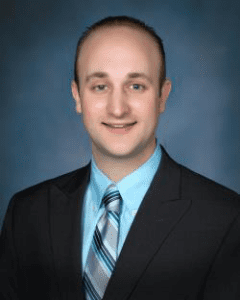Education
Born and raised in Omaha, Dr. Baker graduated from Millard South and went on to attend the University of Nebraska at Omaha. After he completed their pre-chiropractic program with studies in basic sciences like chemistry, anatomy, and physics, he was accepted to Palmer College of Chiropractic. There Dr. Baker obtained a Bachelor of Science degree and moved forward through the Doctor of Chiropractic program to graduate Cum Laude.
Many people are surprised to find out that Doctors of Chiropractic attend more credit hours in anatomy and physiology then many Medical Doctors. Since D.C.’s (Doctor of Chiropractic) do not prescribe medications or perform surgery, they specialize in keeping the body in balance through natural methods like hands-on therapies, nutrition, and lifestyle counseling.
Philosophy
Chiropractic is based on the science and philosophy that your body it self healing if you keep it in balance. There are many routes that lead to disease. All of which are caused by unnatural living. Chiropractic strives to keep your body in balance and to help you live your life to its full potential. Just because you are not “sick” does not mean you are living to your full potential.
Experience
During Dr. Baker’s time at Palmer College of Chiropractic, he participated in numerous chiropractic clubs and organizations, and was elected President of Palmer’s Motion Palpation club. He helped new students learn how to use their skills of touch, observation, and advanced knowledge in biomechanics. (The analysis of joint function and control)
After attending several post graduate seminars, Dr. Baker was privileged to study with some of the best musculoskeletal minds of our time. These include Dr. Stuart McGill, Dr. Pavel Kolar, Dr. Craig Leibenson, Dr. Dave Juehering, Dr. David Seamen, Dr. Thomas Hyde, and David Graston.
In his on-going quest for continued education, Dr. Baker was awarded a certification in Orofascial Rehabilitation from the Central Institute of Human Performance in St. Louis.

